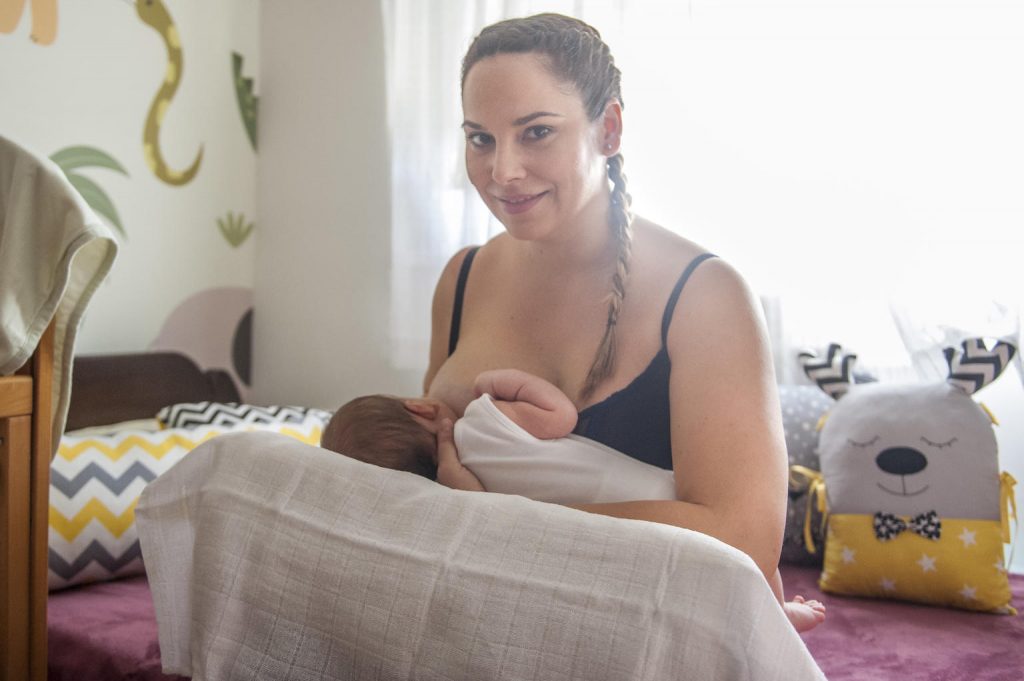Joint Statement by UNICEF Executive Director Henrietta Fore and WHO Director-General Dr. Tedros Adhanom Ghebreyesus on the 40th anniversary of the adoption of the International Code of Marketing of Breastmilk Substitutes

NEW YORK/GENEVA, 21 May 2021 – “In 1981, health officials from around the world gathered at the World Health Assembly to address aggressive marketing tactics by the infant and young child feeding industry, which was promoting formula feeding over breastfeeding and causing a dramatic increase in infant morbidity and mortality. The result was the International Code of Marketing of Breastmilk Substitutes (the Code), a landmark policy framework designed to stop commercial interests from damaging breastfeeding rates and endangering the health and nutrition of the world’s youngest inhabitants.
“In the last four decades, there has been a 50 per cent increase in the prevalence of exclusive breastfeeding. As a result, an estimated 900 million infants globally have enjoyed the survival, growth and development benefits of exclusive breastfeeding in infancy.
“Breastfeeding is vital to a child’s lifelong nutrition, health, and wellbeing. It reduces costs for families, health facilities, and governments. Breastfeeding protects children from infections and saves lives. It supports emotional bonding between mothers and babies, along with other mental health benefits.
“Yet aggressive marketing of breastmilk substitutes continues to discourage women from breastfeeding, putting both children’s and women’s health at risk.
“The 40th anniversary of the adoption the International Code of Marketing of Breastmilk Substitutes is an opportunity to mark the significant progress made in protecting and promoting the incomparable benefits of breastfeeding, but also a reminder of the work still to be done.
“A majority of countries have enacted legislation to implement at least some provisions of the Code. But unfortunately, only 25 countries have implemented measures that are substantially aligned with the Code.
“The Code remains as relevant today as it was 40 years ago. Last year, some marketers of baby foods exploited the COVID-19 pandemic to promote their products by invoking unfounded fears that breastfeeding could transmit COVID-19. WHO and UNICEF guidance is clear: mothers suspected or known to have COVID-19 should continue breastfeeding.
“On the 40th anniversary of the Code, UNICEF and WHO call on governments, health workers, and the baby food industry to fully implement and abide by the Code requirements:
- Governments must enact and enforce legislation to prevent commercial interests from undermining breastfeeding, optimal infant and young child feeding, and the health of children and women, including during pregnancy and breastfeeding.
- Health workers must protect, promote and support breastfeeding; they must not accept sponsorship from companies that market foods for infants and young children for scholarships, awards, grants, meetings, or events.
- The infant and young child feeding industry must publicly commit to full compliance, globally, with the International Code of Marketing of Breastmilk Substitutes and subsequent relevant World Health Assembly resolutions.
“Together, we must take the 40th anniversary milestone as an opportunity to celebrate the progress made in promoting and supporting breastfeeding and call to boldly protect breastfeeding as the best start in life, for every child.”
##
For further information, please contact:
Helen Wylie, UNICEF New York, Tel: +1 917 244 2215, hwylie@unicef.org
Pippa Haughton, WHO Geneva, Tel: +41 794466331, haughtonp@who.int or mediainquiries@who.int
About UNICEF
UNICEF works in some of the world’s toughest places, to reach the world’s most disadvantaged children. Across more than 190 countries and territories, we work for every child, everywhere, to build a better world for everyone.
For more information about UNICEF and its work for children visit www.unicef.org
Follow UNICEF on Twitter, Facebook, Instagram and YouTube
About WHO
The World Health Organization provides global leadership in public health within the United Nations system. Founded in 1948, WHO works with 194 Member States, across six regions and from 149 offices, to promote health, keep the world safe and serve the vulnerable. Our goal for 2019-2023 is to ensure that a billion more people have universal health coverage, to protect a billion more people from health emergencies, and provide a further billion people with better health and wellbeing.
For updates on COVID-19 and public health advice to protect yourself from coronavirus, visit www.who.int and follow WHO on Twitter, Facebook, Instagram, LinkedIn, TikTok, Pinterest, Snapchat, YouTube, Twitch




